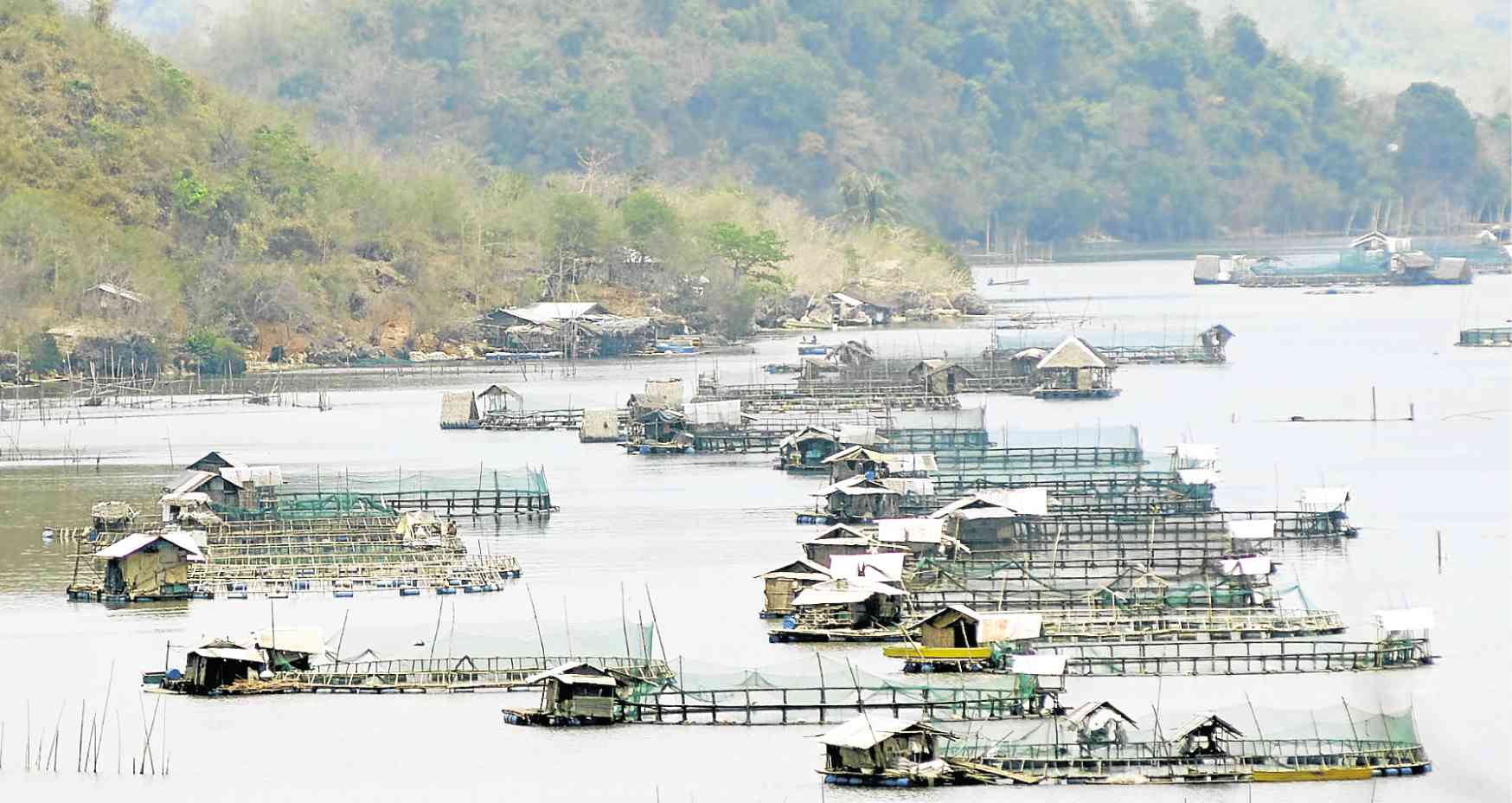‘No fish pen’ policy set in Pangasinan town

‘BANGUS’ ZONE The municipal government of Anda in Pangasinan province has started clearing fish pens growing “bangus” (milkfish) in Kakiputan Channel as part of the aquaculture zone’s rehabilitation. -WILLIE LOMIBAO
ANDA, Pangsinan — By mid-April, this island town’s aquaculture zone will be completely cleared of fish pens and cages.
On Wednesday, the town government here started implementing its “no fish pen” policy, serving notices of violations to operators who were given 15 days to dismantle their structures.
The pens had been largely blamed for the deterioration of the aquaculture zone’s water quality, impeding the normal flow of water from and to the sea.
At least 473 “bangus” (milkfish) pens and 266 cages operate in this town’s aquaculture zones located in the waters off Barangay Mal-ong, Awag, Siapar, Dolaoan and San Jose.
Top producer
Article continues after this advertisementTogether with the aquaculture area in neighboring Bolinao town, the pens and cages are the sources of at least 60 percent of bangus being produced in Pangasinan.
Article continues after this advertisementTheir combined production had kept the province the country’s top bangus producer, contributing 106,857.37 metric tons (27.27 percent), to the total production of 391,908.13 MT from 2013 to 2015, according to the Philippine Statistics Authority.
“Following the fish kill… last year, we have agreed that we now have to rehabilitate our aquaculture zone,” said Elizabeth Tomas, the town’s agriculturist.
On May 31 last year, dead fish worth P86 million were found floating along the Kakiputan Channel in the villages of Siapar, Awag and Mal-ong where 172 cages and pens had been built.
In the eastern side of the channel, 67 pens in Barangay Culang, Luna and Luciente 2 in Bolinao were also hit by the fish kill. Losses reached P24 million.
Tomas said the quality of water in the town’s aquaculture zone, which was established by an ordinance in 2002, had deteriorated through the years.
This prompted Anda Mayor Aldrin Cerdan to suspend fish stocking in the aquaculture zone to allow the water to “heal.”
Moratorium
In Bolinao, Mayor Arnold Celeste also ordered a two-year moratorium on all aquaculture operations at the Kakiputan Channel straddling Barangay Luciente 2, Culang and Luna there, saying the waters needed time to recover.
But Cerdan lifted the suspension order in August last year and gave bangus growers until December to operate to allow them to recoup their losses from the fish kill.
Tomas said pen operators had agreed to a sequence of demolition of the structures after a series of dialogs last year.
Abandoned pens that have no stock will be dismantled first, followed by pens that have been stocked. The rest of the pens will comprise the last batch.
According to Tomas, the demolition will have a minimal impact on the local fish production since the cages will still be there.
“But if you compare the long-term effect of what we are doing now, it will eventually redound to the benefit of the town and the workers because we will have a sustainable aquaculture operation in the future,” she said. —Gabriel Cardinoza